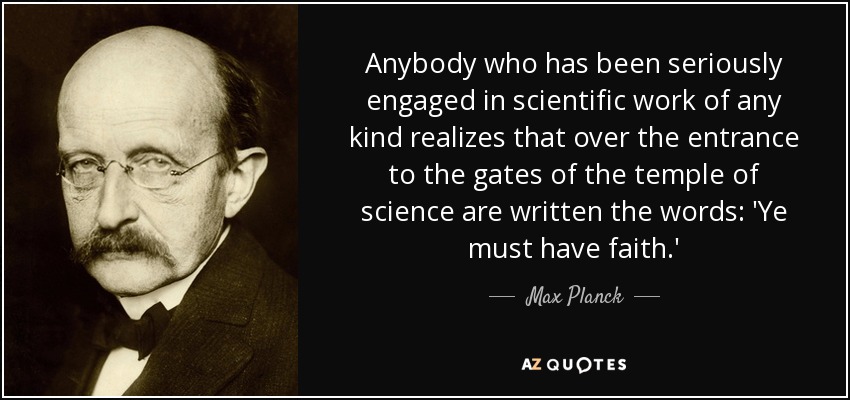there already exist plenty of resources to learn english in the bay area, the thing is ...you don't have to learn english thanks to the goverment....you can entrench yourself in the ethnic enclave of your choice and never be forced to learn english.The thing is they already employ plenty of people to act as interpreters for their own business and for these offices that do work permits etc. in theory it could go one of two ways. End up as helpful as obamacare (read:sarcasm) or potentially save some money on man hours. Interpreters are actually hard to find for many languages and therefore cost taxpayers quite a bit to keep them employed
Edit: I'll leave it at that. I know I'm not educated enough on the subject to debate this point further, this is just my opinion based on my knowledge of the discussion topic.
Become a Patron!
You are using an out of date browser. It may not display this or other websites correctly.
You should upgrade or use an alternative browser.
You should upgrade or use an alternative browser.
CLOSED- Debate Invitation to ECF Troublemakers
- Thread starter pcrdude
- Start date
- Status
- Not open for further replies.
Sooooo.... What point are you trying to make exactly? Don't bother trying to learn the language at all?there already exist plenty of resources to learn english in the bay area, the thing is ...you don't have to learn english thanks to the goverment....you can entrench yourself in the ethnic enclave of your choice and never be forced to learn english.
Well said. This is my view. I'm an Atheist, and I see no reason to believe in any god(s). Sure, they MAY exist, but with not one shred of evidence, it is as good as them not existing.I think atheists just do not believe in a god without proof. Agnostics are unsure. I think it's a fine line. You cannot prove a negative, so an atheist does not say there is NO god. They simply do not BELIEVE there is one (or many). JMHO.
No my point is it doesn't matter how much money you steal from the taxpayers to create english classes a huge number of forgien nationals have no interest nor neccessity to learn english....why bother. Those that are interested learn...learning english gives you independence but alot of people don't want independnece they want a sugar daddy and so the DNC who control CA. cater to being a sugar daddy to the immigrant communities in order to secure votes, the last thing the DNC wants is for the immigrants to be independent.Sooooo.... What point are you trying to make exactly? Don't bother trying to learn the language at all?
Last edited:
And by the way, when it comes to failing to address the subject, you have yet to even begin explaining why atheism is illogical. Evidently you need me to be the stereotype you have in your head in order to have the debate? Sorry. That isn't me. That's a straw man you built and are becoming increasingly frustrated that no one will let you attack.
I posted that pages ago fuckwad. You can't prove a deity doesn't exist. Period. That makes it an unscientific claim.
In reality, those (like you) who claim to be atheists, really aren't. The etymology of the term doesn't even support that! In reality, "strict atheism", is the only REAL atheism, and you and your ilk are just "strong agnostics".
Quote:
In early ancient Greek, the adjective átheos (ἄθεος, from the privative ἀ- + θεός "god") meant "godless". It was first used as a term of censure roughly meaning "ungodly" or "impious". In the 5th century BCE, the word began to indicate more deliberate and active godlessness in the sense of "severing relations with the gods" or "denying the gods". The term ἀσεβής (asebēs) then came to be applied against those who impiously denied or disrespected the local gods, even if they believed in other gods. Modern translations of classical texts sometimes render átheos as "atheistic". As an abstract noun, there was also ἀθεότης (atheotēs), "atheism". Cicero transliterated the Greek word into the Latin átheos. The term found frequent use in the debate between early Christians and Hellenists, with each side attributing it, in the pejorative sense, to the other.[12]
The term atheist (from Fr. athée), in the sense of "one who ... denies the existence of God or gods",[125] predates atheism in English, being first found as early as 1566,[126] and again in 1571.[127] Atheist as a label of practical godlessness was used at least as early as 1577.[128] The term atheism was derived from the French athéisme,[129] and appears in English about 1587.[130] An earlier work, from about 1534, used the term atheonism.[131][132] Related words emerged later: deist in 1621,[133] theist in 1662,[134] deism in 1675,[135] and theism in 1678.[136] At that time "deist" and "deism" already carried their modern meaning. The term theism came to be contrasted with deism.
Source:
In early ancient Greek, the adjective átheos (ἄθεος, from the privative ἀ- + θεός "god") meant "godless". It was first used as a term of censure roughly meaning "ungodly" or "impious". In the 5th century BCE, the word began to indicate more deliberate and active godlessness in the sense of "severing relations with the gods" or "denying the gods". The term ἀσεβής (asebēs) then came to be applied against those who impiously denied or disrespected the local gods, even if they believed in other gods. Modern translations of classical texts sometimes render átheos as "atheistic". As an abstract noun, there was also ἀθεότης (atheotēs), "atheism". Cicero transliterated the Greek word into the Latin átheos. The term found frequent use in the debate between early Christians and Hellenists, with each side attributing it, in the pejorative sense, to the other.[12]
Source:
https://en.wikipedia.org/wiki/Atheism#Etymology
Along with being an Atheist, I am also an Antitheist. I believe organised religion is a bane on mankind and that we would be better off without it.You know I believe in god but what I think is a joke is religion! See this is kinda personal to be because my sister is a born again Christian & IMHO has lost all sense of reality! It seems to me that religion is MAN'S way of interpreting the bible! They tell you that the Bible is the word of God but it seems to me that the Bible is the word of god as recorded as recorded by man! So in my opinion any time man gets involved in anything it can become skewed with that persons own opinions! If the bible is the word of god how can there be more than one religion? People say that bible stands for Basic Instruction Before Leaving Earth! As written 2000+ years ago! In my opinion god would have known we were going to progress beyond the words written so many years ago! See I also believe in creation & evolution both! To make a long story short I believe that the god/no god debate is one that cannot be won or lost because it's not meant to be!
Whenever I hear someone mention Twinnings I think of 50 Shades of Grey...Umm... Twinings Black Tea?That's the only "brew" I consume.
Andria
Well, being called a fuckwad really furthers the conversation, for sure. Plus, using double negatives in the second sentence.
Atheists AND religious folks cannot prove a deity exists. NOR can they prove that a deity does NOT exist because you cannot prove a negative. So, kindly show us proof of a deity, so we can all get to worshiping such.
TL;DR,
Atheists AND religious folks cannot prove a deity exists. NOR can they prove that a deity does NOT exist because you cannot prove a negative. So, kindly show us proof of a deity, so we can all get to worshiping such.
TL;DR,
I posted that pages ago fuckwad. You can't prove a deity doesn't exist. Period. That makes it an unscientific claim.
In reality, those (like you) who claim to be atheists, really aren't. The etymology of the term doesn't even support that! In reality, "strict atheism", is the only REAL atheism, and you and your ilk are just "strong agnostics".
Quote:
In early ancient Greek, the adjective átheos (ἄθεος, from the privative ἀ- + θεός "god") meant "godless". It was first used as a term of censure roughly meaning "ungodly" or "impious". In the 5th century BCE, the word began to indicate more deliberate and active godlessness in the sense of "severing relations with the gods" or "denying the gods". The term ἀσεβής (asebēs) then came to be applied against those who impiously denied or disrespected the local gods, even if they believed in other gods. Modern translations of classical texts sometimes render átheos as "atheistic". As an abstract noun, there was also ἀθεότης (atheotēs), "atheism". Cicero transliterated the Greek word into the Latin átheos. The term found frequent use in the debate between early Christians and Hellenists, with each side attributing it, in the pejorative sense, to the other.[12]
The term atheist (from Fr. athée), in the sense of "one who ... denies the existence of God or gods",[125] predates atheism in English, being first found as early as 1566,[126] and again in 1571.[127] Atheist as a label of practical godlessness was used at least as early as 1577.[128] The term atheism was derived from the French athéisme,[129] and appears in English about 1587.[130] An earlier work, from about 1534, used the term atheonism.[131][132] Related words emerged later: deist in 1621,[133] theist in 1662,[134] deism in 1675,[135] and theism in 1678.[136] At that time "deist" and "deism" already carried their modern meaning. The term theism came to be contrasted with deism.
Source:
In early ancient Greek, the adjective átheos (ἄθεος, from the privative ἀ- + θεός "god") meant "godless". It was first used as a term of censure roughly meaning "ungodly" or "impious". In the 5th century BCE, the word began to indicate more deliberate and active godlessness in the sense of "severing relations with the gods" or "denying the gods". The term ἀσεβής (asebēs) then came to be applied against those who impiously denied or disrespected the local gods, even if they believed in other gods. Modern translations of classical texts sometimes render átheos as "atheistic". As an abstract noun, there was also ἀθεότης (atheotēs), "atheism". Cicero transliterated the Greek word into the Latin átheos. The term found frequent use in the debate between early Christians and Hellenists, with each side attributing it, in the pejorative sense, to the other.[12]
Source:
https://en.wikipedia.org/wiki/Atheism#Etymology
haleysdadda
AKA BILL
VU Donator
Silver Contributor
Member For 3 Years
Member For 2 Years
ECF Refugee
That's my point! Make it so you have to speak English to become a citizen! As far as paying more taxes you wouldn't have to if you didn't spend millions printing things in 8 or 10 different languages! As far as English not being the official language than why are founding documents written in it?No my point is it doesn't matter how much money you steal from the taxpayers to create english classes a huge number of forgien nationals have no interest nor neccessity to learn english....why bother. Those that are interested learn...
Sent from my SM-G920V using Tapatalk
The DNC don't want the immigrant communities independent...they want them to be a fringe group,so they cannot operate in the US without the aid of a political sugar daddy that will put a gun to the head of american citizens take their money and give it to the immigrant communities in exchange for the immigrant communities voting democrat.....the DNC controls California solely on the immigrant vote ...without it they would lose massive amounts of political and economic power.there is no profit for the DNC to force the immigrant communities into assimilation,and independence.That's my point! Make it so you have to speak English to become a citizen! As far as paying more taxes you wouldn't have to if you didn't spend millions printing things in 8 or 10 different languages! As far as English not being the official language than why are founding documents written in it?
Sent from my SM-G920V using Tapatalk
haleysdadda
AKA BILL
VU Donator
Silver Contributor
Member For 3 Years
Member For 2 Years
ECF Refugee
Have you checked the constitution & our laws lately? Last time I checked they were all written in English then translated to other languages!I could be wrong, but I didn't think there was an 'official' language of the US.
I remember some chatter a few years back, but I was under the impression that it fizzled out.
The states are supposed to be sovereign and the federal government is limited in what it can impose upon a state, so I don't think the federal government can get any traction there.
Would be up to each individual state, I would think.
:unsure:
Personally, I think more Americans need to be bi/tri- lingual. (even more if that's your fancy)
We are one of very few nations on the planet whose people only speak 1 language.
I have a personal, short term goal of learning a new language every winter, starting this November. I will probably start with one of the languages I already know a little.
French, Spanish and German.


haleysdadda
AKA BILL
VU Donator
Silver Contributor
Member For 3 Years
Member For 2 Years
ECF Refugee
Did you ever think those other countries make it easy for English speakers for our money as tourists? Is it that easy to become a citizen of the countries you speak of? Really because I don't know!Disagree.
Go to France, Germany, Itally, Japan etc. etc. Know what you'll see? Signs and labels and forms and lots of things in English and the native language. For an American, getting around in these places is practically as easy as getting around in the US, because these countries provide services in the languages people there speak.
Spanish is spoken by about 45 million people in the US. It's the second most used language here next to English. It makes no sense to exclude 45 million residents of this country due to some kind of loyalty? to English.
The single defining quality of this country is that it's founded on ideas. Not race, not heredity, not wealth or military strength. It's based on ideas, chief amongst them being that the government is of, by and for the people. When nearly 20% of the population at large speaks Spanish, it makes perfect sense that your AND their government would reflect that fact in some way. Because our country is a study in the egalitarian mixing of ideas in a unified yet diverse culture.
Two things. You are using a false dichotomy, and the double negative was necessary for clarity.Well, being called a fuckwad really furthers the conversation, for sure. Plus, using double negatives in the second sentence.
Atheists AND religious folks cannot prove a deity exists. NOR can they prove that a deity does NOT exist because you cannot prove a negative. So, kindly show us proof of a deity, so we can all get to worshiping such.
TL;DR,
so was the fuckwad.Two things. You are using a false dichotomy, and the double negative was necessary for clarity.

haleysdadda
AKA BILL
VU Donator
Silver Contributor
Member For 3 Years
Member For 2 Years
ECF Refugee
Can't they be immigrants & speak English too?The DNC don't want the immigrant communities independent...they want them to be a fringe group,so they cannot operate in the US without the aid of a political sugar daddy that will put a gun to the head of american citizens take their money and give it to the immigrant communities in exchange for the immigrant communities voting democrat.....the DNC controls California solely on the immigrant vote ...without it they would lose massive amounts of political and economic power.there is no profit for the DNC to force the immigrant communities into assimilation,and independence.

why bother ...what do you think would be the motive.Can't they be immigrants & speak English too?
Because we needs some Deliverance fuckedupedness? This ain't the first time you've said something similar to Surf. It is creepy.squeal for me piggy...eeeee.eeeee
They aren't "Pro-Life", they are "Pro-Fetus". Once it is born, all concern vanishes.YES!!!!! Idiots. And all those "pro-life" idiots too. If they were REALLY pro-life, they'd understand that bringing unwanted children into the world is the WORST POSSIBLE thing you can do. All children DESERVE to be wanted... and if they're not, they shouldn't be brought! Just because you goofed is no reason to bring a new person into a miserable existence -- because if they aren't wanted, it WILL be miserable.
Andria

Because we needs some Deliverance fuckedupedness? This ain't the first time you've said something similar to Surf. It is creepy.

taking care of him is your job churchlady.
you expected more?...he's an idiot, what did you expect.
I'm "an idiot." Wow. Cutting.
The US has spent 22 trillion dollars on the War on Poverty that is more when adjusted for inflation than all the wars in our history....They aren't "Pro-Life", they are "Pro-Fetus". Once it is born, all concern vanishes.
View attachment 48933
also a dipshit ,sleazeball ,and a cravin piece of shit among other things.I'm "an idiot." Wow. Cutting.

Did you ever think those other countries make it easy for English speakers for our money as tourists? Is it that easy to become a citizen of the countries you speak of? Really because I don't know!
Well, given the fact that most of the ones I listed require kids to learn English in grade school? No:
As to their immigration policies, not sure what that has to do with it.
also a dipshit ,sleazeball ,and a cravin piece of shit among other things.
Really digging deep to make a cogent, compelling argument, aren't you? I'm surprised you're no longer suggesting I get raped.
So, why don't you tell me why you're so bent out of shape about me? I don't even know who you are, so your insults fall completely flat. Like a crazy person ranting at a brick wall.
that is because english is the language of bussiness and science.....alot of european kids don't learn to speak it well once out of school.Well, given the fact that most of the ones I listed require kids to learn English in grade school? No:
As to their immigration policies, not sure what that has to do with it.
Have you checked the constitution & our laws lately? Last time I checked they were all written in English then translated to other languages!
Proving what exactly?
that is because english is the language of bussiness and science.....alot of european kids don't learn to speak it well once out of school.
Also not exactly reliant. Especially since both German and French were also the languages of science and research for a couple centuries.
This still doesn't constitute an argument for enforcing a national language here in the US.
I don't care what an individual's religious beliefs are, so long as they aren't trying to force or legislate those beliefs on others. The "Religious Right" in the USA is out of control. They are trying their damnedest to turn this country into a Christian Theocracy. It's bullshit. This is a SECULAR NATION, and it ALWAYS has been.FOUL! Facts not in evidence! You have no idea what the Vaping Godess Andria's IQ is! And you must live somewhere not where I am because living in Cali I've seen alot & met alot of people & I don't think I've ever met an atheist! Where are they all hiding? To hear some of you talk you'd think they are everywhere! As long as you don't try to force your beliefs or lifestyle on me we'll be fine! Because I sure as hell won't force my shit on you! See to me that is basic respect for another human being no matter what their station in life! WHY THE FUCK DOES EVERYBODY THINK THEIR BELIEFS ARE RIGHT TO THE POINT OF FIGHTING ABOUT IT & ACTUALLY AT TIMES KILLING EACH OTHER! I COULDN'T GIVE 2 SHITS ABOUT WHAT YOU DO OR DON'T BELIEVE AS LONG AS IT DOESN'T AFFECT MY FAMILY OR MYSELF! THIS ISN'T A DEBATE PEOPLE! CALLING PEOPLE STUPID & SUCH IS CHILDISH & CAUSES ME TO STOP READING SO IF YOU DO HAVE A VALID POINT IT IS LOST TO ME!
This entireReally digging deep to make a cogent, compelling argument, aren't you? I'm surprised you're no longer suggesting I get raped.
So, why don't you tell me why you're so bent out of shape about me? I don't even know who you are, so your insults fall completely flat. Like a crazy person ranting at a brick wall.
really I'm baseing my view on having alot of french relatives..and you are basing your opions on what....german porn?Also not exactly reliant. Especially since both German and French were also the languages of science and research for a couple centuries.
This still doesn't constitute an argument for enforcing a national language here in the US.
I posted that pages ago fuckwad. You can't prove a deity doesn't exist. Period. That makes it an unscientific claim.
In reality, those (like you) who claim to be atheists, really aren't. The etymology of the term doesn't even support that! In reality, "strict atheism", is the only REAL atheism, and you and your ilk are just "strong agnostics".
Quote:
In early ancient Greek, the adjective átheos (ἄθεος, from the privative ἀ- + θεός "god") meant "godless". It was first used as a term of censure roughly meaning "ungodly" or "impious". In the 5th century BCE, the word began to indicate more deliberate and active godlessness in the sense of "severing relations with the gods" or "denying the gods". The term ἀσεβής (asebēs) then came to be applied against those who impiously denied or disrespected the local gods, even if they believed in other gods. Modern translations of classical texts sometimes render átheos as "atheistic". As an abstract noun, there was also ἀθεότης (atheotēs), "atheism". Cicero transliterated the Greek word into the Latin átheos. The term found frequent use in the debate between early Christians and Hellenists, with each side attributing it, in the pejorative sense, to the other.[12]
The term atheist (from Fr. athée), in the sense of "one who ... denies the existence of God or gods",[125] predates atheism in English, being first found as early as 1566,[126] and again in 1571.[127] Atheist as a label of practical godlessness was used at least as early as 1577.[128] The term atheism was derived from the French athéisme,[129] and appears in English about 1587.[130] An earlier work, from about 1534, used the term atheonism.[131][132] Related words emerged later: deist in 1621,[133] theist in 1662,[134] deism in 1675,[135] and theism in 1678.[136] At that time "deist" and "deism" already carried their modern meaning. The term theism came to be contrasted with deism.
Source:
In early ancient Greek, the adjective átheos (ἄθεος, from the privative ἀ- + θεός "god") meant "godless". It was first used as a term of censure roughly meaning "ungodly" or "impious". In the 5th century BCE, the word began to indicate more deliberate and active godlessness in the sense of "severing relations with the gods" or "denying the gods". The term ἀσεβής (asebēs) then came to be applied against those who impiously denied or disrespected the local gods, even if they believed in other gods. Modern translations of classical texts sometimes render átheos as "atheistic". As an abstract noun, there was also ἀθεότης (atheotēs), "atheism". Cicero transliterated the Greek word into the Latin átheos. The term found frequent use in the debate between early Christians and Hellenists, with each side attributing it, in the pejorative sense, to the other.[12]
Source:
https://en.wikipedia.org/wiki/Atheism#Etymology
Still arguing with yourself, I see.
I notice you don't even bother to ask me what I personally think about it. You're determined to keep doing battle with some links you found and a cherry picked dictionary definition. I mean, I don't even know why you keep referring to me in your one sided "conversation" except to the extent that you seem obsessed with calling me dumb names and smearing me personally for no particular reason. Insults weaken whatever point you may have, even when you're just boxing at shadows.
This entire
really I'm baseing my view on having alot of french relatives..and you are basing your opions on what....german porn?
So, all you have in rebuttal is anecdote and insult?
You're an exceptionally poor debater.
....while there is a very real and brutal religious fandamntalist movement among Islam you focus on of all things chistanity...while slavery rises up again in the world and christian childeren are put on slave blocks you worry about the bapstist down the street...while ethnic cleansings pile up committed by jihadists you get hysterical over the jehovah witnessess.....LOL yeah lots a luck selling that line. It is not Christians that are on college campuses trying to stifle free speech......I don't care what an individual's religious beliefs are, so long as they aren't trying to force or legislate those beliefs on others. The "Religious Right" in the USA is out of control. They are trying their damnedest to turn this country into a Christian Theocracy. It's bullshit. This is a SECULAR NATION, and it ALWAYS has been.
Last edited:
do you mean real world experinces as opposed to wikipedia uuuummm yeah.So, all you have in rebuttal is anecdote and insult?
You're an exceptionally poor debater.
OK, here it is!!!!
For the ECF underground members who like to hide behind the mods aprons, come in here and let's have a debate!!!!
You pick the topic.
Let's see if you are as good at debate as you think you are.
Calling specifically Bones, Katmar, SurfMonkey, but of course, open to anyone.
Ready?
Feeling any regret about this yet? You should be. Your argument was DOA. It doesn't hang together unless you can prove 1) that atheists believe there is no God and 2) that there are official levels of atheism that all atheists have to classify themselves by. Both assertions are false and neither one prover atheism illogical.
Atheism is very logical. Atheists like me don't believe in God. We do't believe there is no God, just that, given the complete lack of evidence on the table, the likely hood is VERY small. But given evidence of such a being I and most atheists like me would readily recognize it's existence.
Believe there's not =/= doesn't believe in.
I don't believe in any of the 5,000 some gods proposed by those who worship them because there is no evidence of their existence. There's no blind belief in that worldview. It's a rejection of belief.
do you mean real world experinces as opposed to wikipedia uuuummm yeah.
You don't grasp what anecdote is and why it doesn't constitute valid evidence in a debate. Check.
....while there is a very real and brutal religious fandamntalist movement among Islam you focus on of all things chistanity...while slavery rises up again in the world and christian childeren are put on slave blocks you worry about the bapstist down the street...while ethnic cleansings pile up committed by jihadists you get hysterical over the jehovah witnessess.....LOL yeah lots a luck selling that line.
You don't think there's a brutal and violent fundamentalist faction of Christians? Volunteer at an abortion clinic for a week or two.
The ability to change one's mind requires the ability to first know how to use the mind, to think and reason, and that is one of the most uncommon abilities known to man.
Andria
Agree, and the practice of debate, whether you convince your opponent or not is the practice of critical thinking. Of challenging your own beliefs. Why? Because, as any good debater knows, you better be able to make the case for BOTH sides of the issue or you'll fail every time.
Still arguing with yourself, I see.
I notice you don't even bother to ask me what I personally think about it. You're determined to keep doing battle with some links you found and a cherry picked dictionary definition. I mean, I don't even know why you keep referring to me in your one sided "conversation" except to the extent that you seem obsessed with calling me dumb names and smearing me personally for no particular reason. Insults weaken whatever point you may have, even when you're just boxing at shadows.
I've asked you repeatedly and you have failed to do so. You have no retort for my argument, so you just spew on and on about.....
nothing
I don't care what an individual's religious beliefs are, so long as they aren't trying to force or legislate those beliefs on others. The "Religious Right" in the USA is out of control. They are trying their damnedest to turn this country into a Christian Theocracy. It's bullshit. This is a SECULAR NATION, and it ALWAYS has been.

Feeling any regret about this yet? You should be. Your argument was DOA. It doesn't hang together unless you can prove 1) that atheists believe there is no God and 2) that there are official levels of atheism that all atheists have to classify themselves by. Both assertions are false and neither one prover atheism illogical.
Atheism is very logical. Atheists like me don't believe in God. We do't believe there is no God, just that, given the complete lack of evidence on the table, the likely hood is VERY small. But given evidence of such a being I and most atheists like me would readily recognize it's existence.
Believe there's not =/= doesn't believe in.
I don't believe in any of the 5,000 some gods proposed by those who worship them because there is no evidence of their existence. There's no blind belief in that worldview. It's a rejection of belief.
Did you forget the etymology already? Atheists who leave open the possibility of deities are strong agnostics, not atheists.
And you are a pussy for not admitting it.
I've asked you repeatedly and you have failed to do so. You have no retort for my argument, so you just spew on and on about.....
nothing
You haven't. But I told you anyway, and surprise surprise, you ignored it so you could keep attacking your straw man.
Boy. For someone who was so full of confidence and bluster you sure turned out to be a limp bag of hot air... again.
haleysdadda
AKA BILL
VU Donator
Silver Contributor
Member For 3 Years
Member For 2 Years
ECF Refugee
Proving that your point of English not being the official language is incorrect!Proving what exactly?
Did you forget the etymology already? Atheists who leave open the possibility of deities are strong agnostics, not atheists.
And you are a pussy for not admitting it.
Yeah, everyone knows that's the rebuttal you'd try to loft. It has already been addressed.
Agnostics don't know EITHER WAY. They're bet hedging, just like religious people who believe because they'd rather not go to hell.
Atheists recognize evidence and facts. There is no evidence supporting the existence of god(s) so we do not consider them to be matters of fact until such time as evidence surfaces.
It has nothing to do with bet hedging. It has everything to do with the observable. The provable.
Good thing you added the "pussy" smear though. That really gives your limp argument a spine.
- Status
- Not open for further replies.






